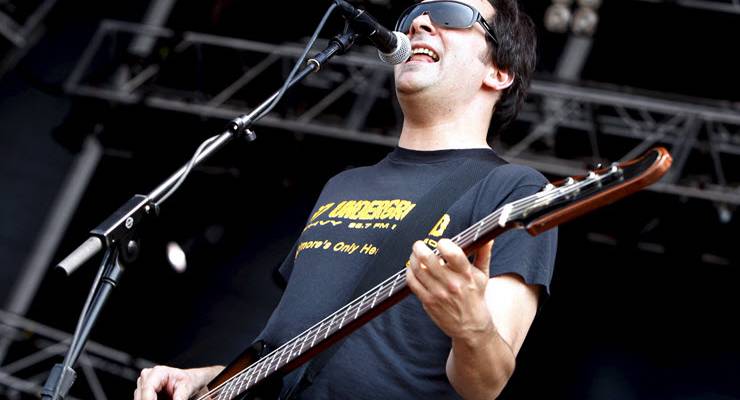
Good for what ails ya!
Donald Trump has recently been enthusiastically pushing the supposed anti-coronavirus properties of hydroxychloroquine. And that’s been a surprise: partially because it’s a relatively obscure and superseded malaria treatment which carries high risk for people with heart conditions, and partially because it’s a long word that’s hard to say.
Bemoaning the fact that a drug which has yet to be comprehensively tested on COVID-19 had not been immediately rolled out to battle the pandemic regardless, he told the world, “if it does work, it would be a shame we did not do it early,” and exhorted Americans with the disease to give it a whirl because, “what do you have to lose?”.
And chances are you read that and immediately thought, “given everything we know about the man’s interest in science, medical research and the wellbeing of others, if Trump is so keen on it then he must have a personal financial stake in the drug”.
And that’s incredibly cynical of you. Especially since it would appear that you’re absolutely right.
According to The New York Times, Trump has “a small personal financial interest in Sanofi, the French drugmaker that makes Plaquenil, the brand-name version of hydroxychloroquine”.
Honestly, wouldn’t it be refreshing if just for once Trump didn’t immediately confirm our worst assumptions?
And yes, it’s inarguably venal, but it’s a step up from, say, announcing that contributing to his presidential campaign fund would confer priority access to ventilators. Maybe he’s saving that for October?
That said, Australia has just snaffled a bunch of hydroxychloroquine for testing so clearly Health Minister Greg Hunt was sold on Trump’s medicine show pitch. Reports he then attended a meeting with one Lyle Lanley about purchasing a genuine bonafide electrified six-car monorail could not be confirmed at press time.
That said: oh man, what if it works? Dear god, please let it work…
All about that bass
There are a bunch of conspiracy theories floating around about COVID-19, which you can easily dip into by opening Facebook. But here’s one which hasn’t had enough notice lately: is the disease targeting bassists?
One of the first celebrity deaths from the coronavirus was Adam Schlesinger, the film and TV composer who won Emmys for his work on Crazy Ex-Girlfriend and wrote the fake ’60s hit in the title track from the Tom Hanks film That Thing You Do!.
His career began as the bassist in Ivy and more notably in Fountains Of Wayne, the glorious US band who had a novelty-ish hit with ‘Stacey’s Mom’, but have a back catalogue of gloriously witty and wistful power pop and should have been global superstars goddammit.
But that’s not all. David Bowie’s mid-’80s bassist Matthew Seligman, who was also bassist with UK psychedelia pioneers The Soft Boys and regular player for Thomas Dolby, is currently fighting the disease in intensive care. And, Duran Duran’s John Taylor has announced he’s made a full recovery from COVID-19.
And yes, this is purely a coincidence with regards to a disease effecting a vast amount of people around the world. But it’s worth pointing out that as conspiracy theories go, it has more evidence supporting it than that 5G towers are somehow involved.
In any case, if you have a bassist close to you maybe it’s time to check in. You know, just in case. We can’t all be the White Stripes.
Super powers
While the rest of the government is busy sorting out that whole pandemic and economic crisis thing, the Liberal Member for Goldstein Tim Wilson has been fighting against Australia’s real enemy: industry superannuation funds.
The New Daily reports that Wilson has asked industry super funds to provide comprehensive accounting of their asset value and liquidity — a request he has not made of retail funds for reasons which an unkind observer might assume to be ideological. But in so doing he accidentally revealed yet another advantage that industry super funds have over the retail ones.
You’re likely aware that the government has just made it possible for people to withdraw up to $10,000 from their superannuation in each of the next two years. And it turns out that industry super has far greater liquidity than their profit-making brethren, meaning that if there ends up being a rush on super funds the not-for-profit ones will weather it with less disruption.
The New Daily cites industry researcher Alex Dunnin, who claims that:
There is $946 billion in cash and bonds in superannuation, which is split between $397 billion in cash and $549 billion in bonds … The not-for-profit sector holds 51% of this, while self-managed super funds hold 26% and retail funds 23%.
So to be clear, all sectors of the superannuation biz have more than enough cash to handle a run on people’s already-depleted savings. But perhaps Wilson will argue that industry super funds’ cash and assets are inferior because … um, maybe they’re haunted? Look, he’ll come up with something.








Yet to succumb, I was momentarily jazzed to have bucked the odds. Then I realized what it says about my playing and my world collapsed. As we – as…they (*sobs*) – say, a guitarist is a wannabe bass player whose right hand just ain’t up to it.
PS: ‘Stacey’s Mom’ – permanent column please. APS is clearly the greatest rock critic of all time.
Old joke – during pause in rehearsal a fight breaks out betwen bass guitarist and drummer. When asked what is was about, bassist sez “he told me he’d detuned me axe but he won’t tell me which string!”
Since when have drummers rehearsed…?
‘All kinds of time’ is basically the song of the current situation.